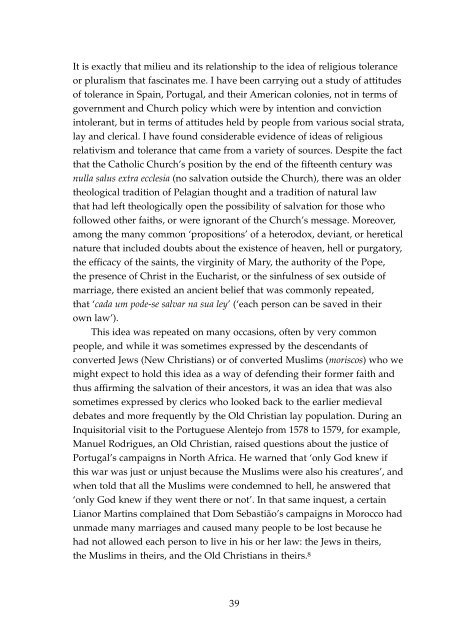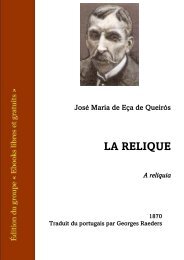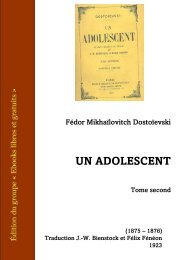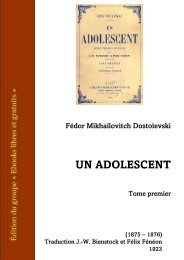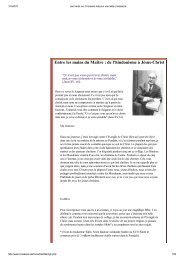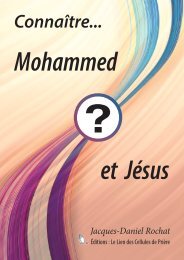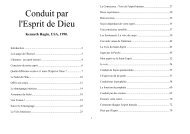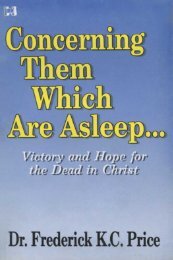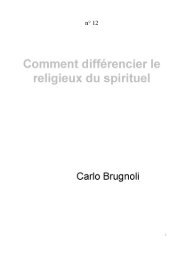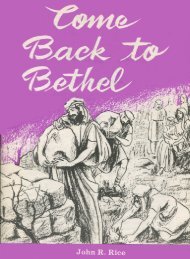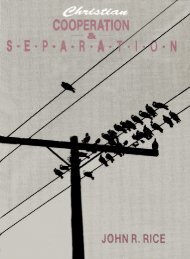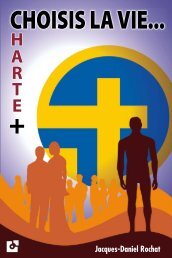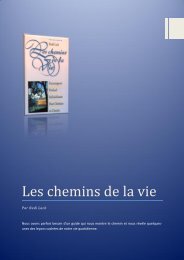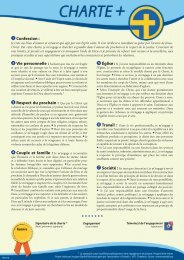The Expansion of tolerance
You also want an ePaper? Increase the reach of your titles
YUMPU automatically turns print PDFs into web optimized ePapers that Google loves.
It is exactly that milieu and its relationship to the idea <strong>of</strong> religious <strong>tolerance</strong><br />
or pluralism that fascinates me. I have been carrying out a study <strong>of</strong> attitudes<br />
<strong>of</strong> <strong>tolerance</strong> in Spain, Portugal, and their American colonies, not in terms <strong>of</strong><br />
government and Church policy which were by intention and conviction<br />
intolerant, but in terms <strong>of</strong> attitudes held by people from various social strata,<br />
lay and clerical. I have found considerable evidence <strong>of</strong> ideas <strong>of</strong> religious<br />
relativism and <strong>tolerance</strong> that came from a variety <strong>of</strong> sources. Despite the fact<br />
that the Catholic Church’s position by the end <strong>of</strong> the fifteenth century was<br />
nulla salus extra ecclesia (no salvation outside the Church), there was an older<br />
theological tradition <strong>of</strong> Pelagian thought and a tradition <strong>of</strong> natural law<br />
that had left theologically open the possibility <strong>of</strong> salvation for those who<br />
followed other faiths, or were ignorant <strong>of</strong> the Church’s message. Moreover,<br />
among the many common ‘propositions’ <strong>of</strong> a heterodox, deviant, or heretical<br />
nature that included doubts about the existence <strong>of</strong> heaven, hell or purgatory,<br />
the efficacy <strong>of</strong> the saints, the virginity <strong>of</strong> Mary, the authority <strong>of</strong> the Pope,<br />
the presence <strong>of</strong> Christ in the Eucharist, or the sinfulness <strong>of</strong> sex outside <strong>of</strong><br />
marriage, there existed an ancient belief that was commonly repeated,<br />
that ‘cada um pode-se salvar na sua ley’ (‘each person can be saved in their<br />
own law’).<br />
This idea was repeated on many occasions, <strong>of</strong>ten by very common<br />
people, and while it was sometimes expressed by the descendants <strong>of</strong><br />
converted Jews (New Christians) or <strong>of</strong> converted Muslims (moriscos) who we<br />
might expect to hold this idea as a way <strong>of</strong> defending their former faith and<br />
thus affirming the salvation <strong>of</strong> their ancestors, it was an idea that was also<br />
sometimes expressed by clerics who looked back to the earlier medieval<br />
debates and more frequently by the Old Christian lay population. During an<br />
Inquisitorial visit to the Portuguese Alentejo from 1578 to 1579, for example,<br />
Manuel Rodrigues, an Old Christian, raised questions about the justice <strong>of</strong><br />
Portugal’s campaigns in North Africa. He warned that ‘only God knew if<br />
this war was just or unjust because the Muslims were also his creatures’, and<br />
when told that all the Muslims were condemned to hell, he answered that<br />
‘only God knew if they went there or not’. In that same inquest, a certain<br />
Lianor Martins complained that Dom Sebastião’s campaigns in Morocco had<br />
unmade many marriages and caused many people to be lost because he<br />
had not allowed each person to live in his or her law: the Jews in theirs,<br />
the Muslims in theirs, and the Old Christians in theirs. 8<br />
39


